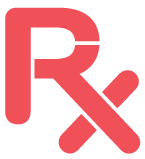Tice Bcg
Set Dosage Details
Manufacturer
Form
Dosage
Quantity
CLOSE
| RITE AID PHARMACY |
$331.19
With Free Coupon
|
||
| CVS PHARMACY |
$335.39
With Free Coupon
|
||
| GIANT EAGLE PHARMACY |
$337.73
With Free Coupon
|
||
| WALMART PHARMACY |
$347.15
With Free Coupon
|
||
| WALGREENS |
$347.50
With Free Coupon
|
||
| RITE AID PHARMACY |
$331.19
With Free Coupon
|
||
| CVS PHARMACY |
$335.39
With Free Coupon
|
||
| GIANT EAGLE PHARMACY |
$337.73
With Free Coupon
|
||
| WALMART PHARMACY |
$347.15
With Free Coupon
|
||
| WALGREENS |
$347.50
With Free Coupon
|
||

Drug Info for tice bcg
WHY is this medicine prescribed? BCG vaccine provides immunity or protection against tuberculosis (TB). The vaccine may be given to persons at high risk of developing TB. It is also used to treat bladder tumors or bladder cancer. This medication is sometimes prescribed for other uses; ask your doctor or pharmacist for more information.
- Tice BCG
- Inside the bladder
Do not drink fluids for 4 hours before your treatment. Empty your bladder before you receive this medicine.
While this medicine is in the bladder, you should lie on your back, stomach, and each side for 15 minutes in each position.
This medicine is given by running the liquid through a tube (catheter) into your bladder. The tube is then taken out, and you will hold the medicine in your bladder for two hours.
Drink plenty of water during each treatment.
After each treatment, all patients (men and women) should sit down to urinate.
Any time you urinate in the first 6 hours after treatment, disinfect the urine by adding an equal amount (usually about 8 ounces, or 1 cup) of household bleach to the toilet bowl and letting it stand for 15 minutes before flushing.
Injection routeA nurse or other health provider will give you this medicine.
You can get up after the first hour, but hold the medicine in your bladder for 1 more hour. If you are unable to hold it, tell your doctor or nurse.
Treatment with BCG may be given once a week for 6 weeks and approximately each month afterward for 6 to 12 months, or as your doctor orders.
You should not use this medicine if your immune system is weak due to other medicines or illness. You should not use this medicine if you have a fever (unless your doctor knows the cause) or if you have a bladder infection. You may not be able to receive this medicine if you have active tuberculosis, or blood in your urine.
Before you begin your treatment, make sure your doctor knows if you are pregnant or breast feeding. Do not get pregnant while you are being treated with this medicine.
Tell your doctor if you have any changes in urinary habits after treatment with this medicine. Changes include urinating more or less than usual or having trouble urinating.
Some people develop infections after receiving this medicine. Call your doctor right away if you start to have flu-like symptoms. These symptoms include chills, weakness, and fever (103 degrees or higher) that lasts longer than 72 hours.
Your doctor will do lab tests at regular visits to check on the effects of this medicine. Keep all appointments.
Uncontrollable shaking or trembling.
Urinating more than usual, or feeling like you have to urinate more often.
Make sure your doctor knows if you are also using a medicine to treat an infection or tuberculosis. Some tuberculosis medicines are ethambutol, isoniazid, and rifampin. Medicines to treat an infection (antibiotics) include amoxicillin, azithromycin, penicillin, Augmentin®, Bactrim®, and Cipro®.
Tell your doctor if you are using any medicine that weakens your immune system, such as steroids or cancer treatments. Some steroids are dexamethasone, prednisolone, prednisone, and Medrol®.
Some people develop infections after receiving this medicine. Call your doctor right away if you start to have flu-like symptoms. These symptoms include chills, weakness, and fever (103 degrees or higher) that lasts longer than 72 hours.
Your doctor will do lab tests at regular visits to check on the effects of this medicine. Keep all appointments.
- Uncontrollable shaking or trembling.
- Severe skin rash.
- Blood in your urine.
- Burning or pain when you urinate.
- Fever (103 degrees F or higher), chills, or extreme tiredness.
- Urinating more than usual, or feeling like you have to urinate more often.
- Nausea or vomiting.
- Mild skin rash.
- Cough.
- Pain in your joints.
